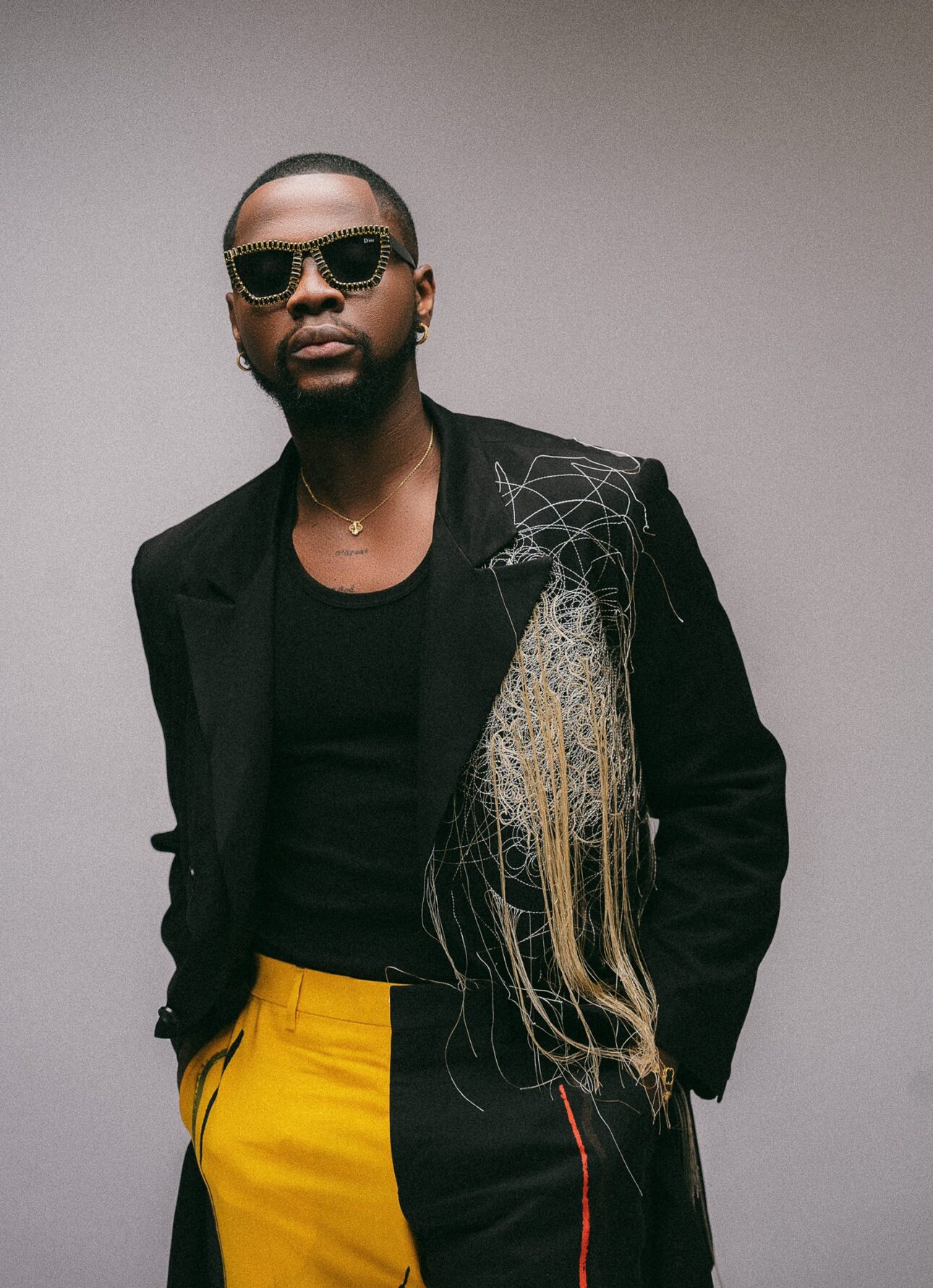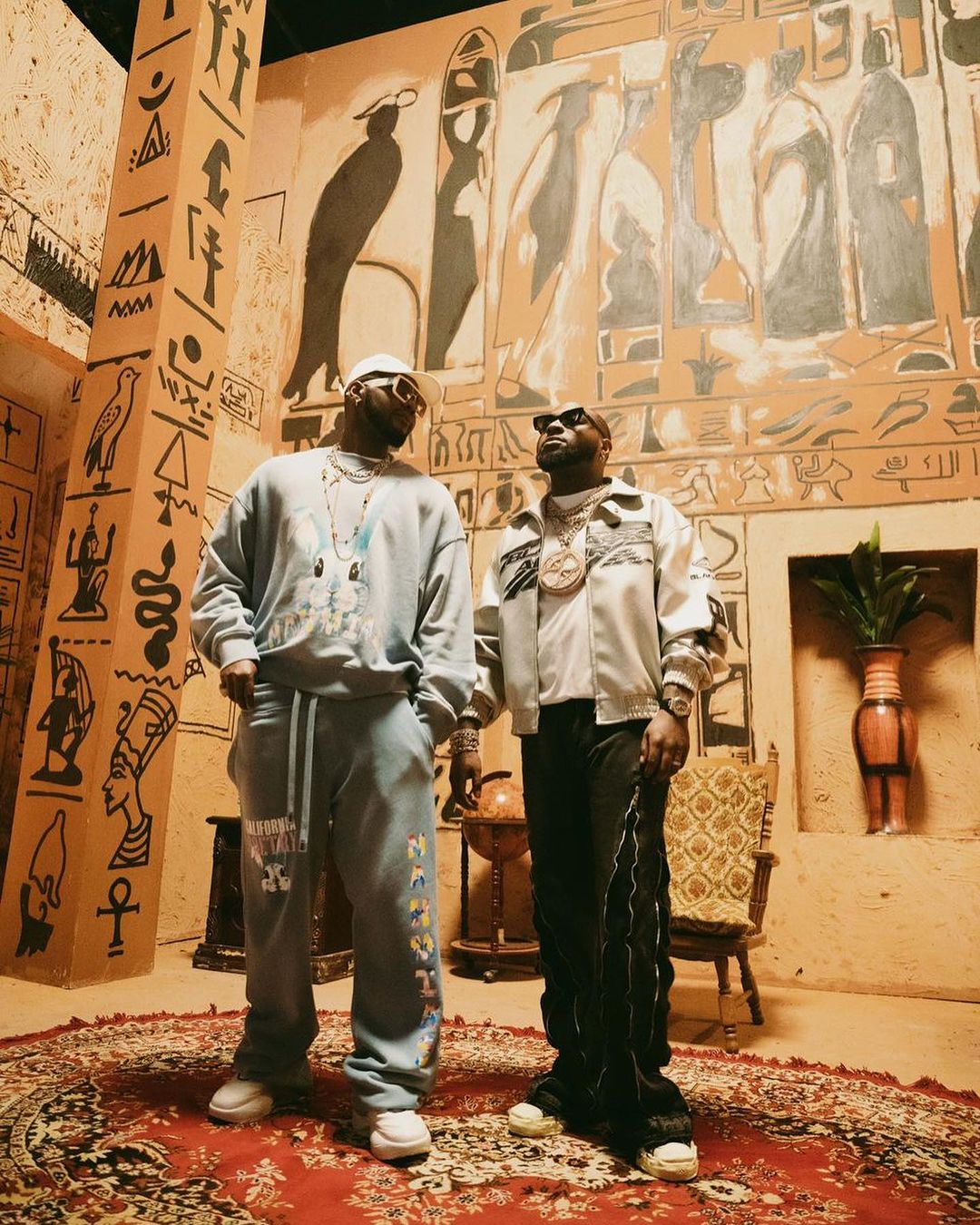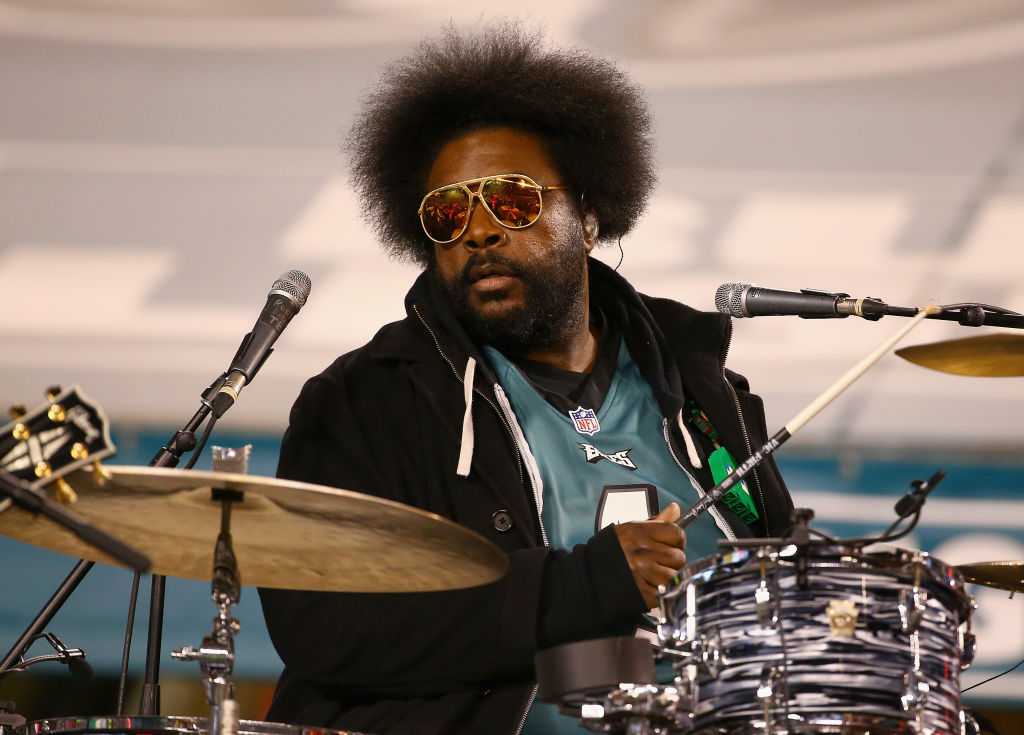Afrobeats Star Kizz Daniel Is Not Yet a Household Name, but Is About to Be…

It’s around 4:00 p.m. in Lagos, and Nigerian singer-songwriter Kizz Daniel has been up all night recording in the studio, and despite the fatigue that’s undoubtedly setting in, the Afrobeats artist is in high spirits.
Hailing from the small town of Abeokuta—which translates to “the city under the rock”—Daniel was largely sheltered from the Western world, but the music of Lionel Richie and Michael Jackson managed to forge an indelible influence. Adding in the regional sounds of Fuji, Apala, and Juju, Daniel’s musical palate expanded quickly, aided by his father’s eclectic record collection. By the time he was a teenager, Daniel knew he wanted to pursue a music career and started taking steps to make that a reality.

Simultaneously, he pursued his education. After graduating from Abeokuta Grammar School, he attended the Federal University of Agriculture in Abeokuta, where he received a degree in water resources management and agrometeorology in 2013. Finding himself at a crossroads, Daniel was presented with a challenge from his father, who paid for his first-ever studio recording.
“He literally said, ‘I’m going to give you this money,” Daniel tells SPIN. “‘Go make this music that you so believe in. If it doesn’t work out, you’re going to the U.K. for your masters.’ So it was either I make it in music or I end up a nine-to-fiver.”
Less than 12 months later, Daniel released his debut single, “Woju,” through G-Worldwide Entertainment, and it was a hit. The song went on to be nominated in the Hottest Single category at the 2015 Nigeria Entertainment Awards and put Daniel on a path to stardom. His debut album, New Era, arrived in 2016, and since then, he’s released four more projects, including 2023’s Maverick. Last year’s “(RTID) Rich Till I Die” single has racked up more than 22 million views on YouTube alone, while his latest, “Twe Twe” (featuring Davido), has been streamed more than four million times on Spotify since its January 25 release. Daniel is now one of Africa’s biggest Afrobeats artists, and it’s only a matter of time before he crosses over in the U.S.
Daniel had some time to talk about his appearance at the FIFA World Cup Qatar 2022, how his father’s 2015 death impacted his career, and how gratitude plays such an integral role in his success.
What was your household like growing up?
Kizz Daniel: I stayed in Abeokuta [Nigeria] with my family and spent most of my time there. It’s called “The Rock” because it’s surrounded by rocks, basically. So it’s like we’re blocked in from civilization and everything. Somehow we’re here today.
Did your parents listen to a lot of music?
My mom was very calm and regular. My dad was the “it” guy. He’s the one with all the new records. He’s the one with the style and everything. So growing up was fun, I would say.
When your father passed in 2015, did you pour any of that grief into your music?
Yeah, I had a record on my first album [2016’s New Era] that I spoke about everything that happened to me that year in 2015. The record is called “Gobe.” It means “trouble.”
It was a very trying time for me ‘cause I was just starting out, and [my father] was everything to me. He paid for my first ever studio recording. He literally said, “I’m going to give you this money. Go make this music that you so believe in, if it doesn’t work out, you’re going to the U.K. for your masters.” So it was either I make it in music or I end up a nine-to-fiver.
I was listening to “(RTID) Rich Till I Die,” and I love how you talk about how being rich isn’t just about money. Can you talk a little bit about that song?
I was on tour in 2022. I think the jet was taking us to Malawi. I slept in the jet, and the idea for this song came to me. It was more like a vision. I woke up and I told my manager, “Hey, this thing came to me, and I know that this is going to speak to a lot of people.” 2022 was one of [the] busiest years in my career, I must say. I toured the world—it was such a beautiful thing—and I was just feeling rich in everything. I had my boys, and I had all of this glory and appreciation coming all around the world. It was such a beautiful feeling, and I just thought to share it with the world. And that’s how the record came to be. I was just speaking into the people’s consciousness, because we all want to be rich ‘til we die.

But it also sounds like gratitude.
Riches come from how much you cherish your relationship, how much you cherish your family, your business, the things you do. It’s a whole lot. Talking about it now, it’s taking me back to that year when I made that record. I should have dropped it. You know when you have a song, you want to drop the record and then you just replace it with another record, and then you’re like, “OK, I’ll drop it later?” I guess the right time came, and then I put it out.
You said 2022 was a really big year for you. Was that also the year that you performed at the World Cup?
Yes, that’s the year that I performed at the World Cup in Qatar. Unbelievable. Let me give you another story about that. I had “Buga (Lo Lo Lo)” [with Nigerian singer-songwriter Tekno] buzzing in 2022. I went on Twitter and said, “I’d love to perform this song at the World Cup.” I just put it out there. So, they say something like “your mouth is your biggest weapon.” If you don’t say it, you’re not [going] to get [it]. And I’m telling you that for a fact. I [put] it out there, and then the universe just put everything in place, and FIFA just called me and said, “Hey, it’s time.” And that was it. I’m telling you, it was just that easy and seamless.
Do you ever feel like your dad is behind the scenes pulling some strings? Do you feel like he’s still there with you?
Definitely. Because I miss him every day. I really wish he [was] here. Like I said, my dad is a very, very yopie [youthful] guy. He’s a creative man, so he enjoys life. I’m just trying to picture how it would feel now seeing all of these things that his kids are achieving all around the world. He will be so proud. And I know that he’s watching over us and wishing us well. I know I have a guardian angel.
Tell me about your latest record, “Twe Twe.”
It means “twerk, twerk.” It’s very relatable to everyone. I didn’t want to use the “twerk, twerk” because not everybody will see twerking as a normal thing. It just means a woman or a man just shaking their waist. They just see it from a negative point [of view]. I wanted it to be relatable to everyone: kids, housewives, whatever. I’m known for making music for all ages, and I pride myself on that.
It’s an amazing sight to see people dancing to your music. I just give thanks to God for everything. And my Dad, of course.
What is the difference between what’s being pushed in America versus Nigeria?
Music is a global language. I think the only difference between America and Nigeria is just our culture. Music resonates with people the same way. I love the music back in the day that I don’t even understand what the artist is saying, but I enjoyed the feeling the music was giving me. African music is a movement; it’s our culture. We make music that resonates to us, our people, our stories, our struggles, and Americans do what works for them. Rappers sing about guns and fights and all those things because that is their reality. That is what is happening in that region. Here, Africans, we are very particular with drums. The drums is what gives the music feeling. That’s the secret ingredient. It controls your body and makes you want to move in some type of way, while American music doesn’t really make you move like that.
Your first single blew up in 2014. That’s 10 years of fame and 10 years of hard work. What would you say has been the most rewarding part of all of this?
The fact that I’m still here after 10 years just makes everything just watered. I didn’t plan for 10 years to still be in the game. I just wanted to come and drop my hit records, make enough money to take care of myself and my family. There’s this thing they always say that it doesn’t last. They just always say that fame doesn’t last. When people are listening to you, you have to be smart, you have to make as much money as you can because the fans are not going to be loyal to you. And that has been at the back of my mind. Anytime I drop a record, I feel like that might be the last, and then somehow it’s 10 years of consistently dishing out some great music. And I’m still here, 10 years after, still on this journey. That’s the biggest reward that I could ever dream of.
I was watching an older interview with you, and someone asked how you know when you have a hit record and you’re like, “Well, you just keep making good songs.”
Exactly. You don’t know. It just comes. It’s such a beautiful thing that my biggest records are actually songs that I did not want to drop at first. It was just a push from the team, saying, “OK, let’s do this.” And then it just works every single time because you just never know that song that will be the biggest hit. You just have to put your focus on making great music at every single time and then watch the great music go out there and blow the minds of the people.
I want to talk a little bit about this name dispute. I found it really compelling that you were first named Kiss and then you had to change it to Kizz. How did you get to a place where you were OK with moving forward and everything was kind of copacetic with your label?
I had those things going on with my former label back in the day, but it was either I delayed and tried to get it out because I had every right to have my name and all of that. I just got bored, and I felt like K-I-Z-Z is less general and more intentional. It’s not like we just have the name K-I-S-S, which is the regular kiss everywhere. I feel like K-I-Z-Z is more unique. With time, it is proven to be the best decision that I made.
You seem to be a very spiritual old soul. Where do you think that comes from? Your community?
I feel Africans are very, very family-oriented. And they are very, very embedded in the culture of togetherness. We adhere to the African structure on community. From tribes to clans—we have clans, we have tribes, we have villages before we grew into cities, states and countries. So it has always been a community thing—an oppressed community, I would say. So we had to stick together. I don’t think anybody handed things over to Africans. We had to come together to make a lot of things work.
An American kid can just wake up and talk to their parents however they like. They get to have their freedom from, like, 16 or 18, but back home where I’m from, even until you’re 60, as long as your parents are still alive and breathing, you cannot disrespect your parents. It’s taboo in Africa. In Africa, your neighbors are like your extended family. Everyone is in your business. You can live in America and not say hello to your neighbors. Everyone just minds their business and goes about their daily tasks. But I have met a lot of beautiful, amazing souls in America.
Link to the source article – https://www.spin.com/2024/02/afrobeats-star-kizz-daniel-is-not-yet-a-household-name-but-is-about-to-be/
Recommended for you
-
Roland FD-9 Low Noise Hi-Hat Controller
$199,99 Buy From Amazon -
Pioneer DJ VM-80 8-inch Active Monitor Speaker – Black
$289,00 Buy From Amazon -
Boss FS-7 Dual Foot Switch
$64,99 Buy From Amazon -
Pioneer DJ XDJ-RX2 Digital DJ System
$2.199,99 Buy From Amazon -
Alvarez AB60ce Acoustic-electric Bass Guitar – Natural
Buy From Amazon -
Casio Casiotone, 61-Key Portable Keyboard with USB (CT-S300)
$179,00 Buy From Amazon -
John Packer JP071 Bb Cornet
$455,00 Buy From Amazon -
AODSK Ukulele Kit with Gig Bag Strap, Acoustic Ukelele 4-String Wooden Hawaiian Uke for Beginners, Kids and Students (AUS-P08 21Inch Sapele Soprano)
$39,99 Buy From Amazon














Responses